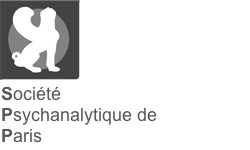|
Résumé :
|
So far, the origins of Polish psychoanalysis have remained in historical obscurity. Today few people remember that at the start of the twentieth century psychoanalysis sparked a debate and divided physicians, psychologists and pedagogues into its followers and opponents in partitioned Poland. The debate about psychoanalysis played out with the most dynamism in the scientific community of Polish neurologists and psychiatrists, where most of the first Polish psychoanalysts were based: Ludwig Jekels, Stefan Borowiecki, Jan Nelken, Herman Nunberg and Karol de Beaurain. Their efforts to popularize psychoanalytic therapy resulted in the entire scientific session being devoted to psychoanalysis at the Second Congress of Neurologists, Psychiatrists and Psychologists in Krakow in 1912. This paper illustrates the profiles of individuals who were involved in the popularization of Polish psychoanalytic thought and demonstrates a variety of reactions provoked by psychoanalytic ideas in scientific circles. It also sets out to piece together the development of Polish psychoanalysis as a whole before the First World War, suggesting that this first wave of interest might in some ways amount to a historically overlooked pre-war Polish school.
|




